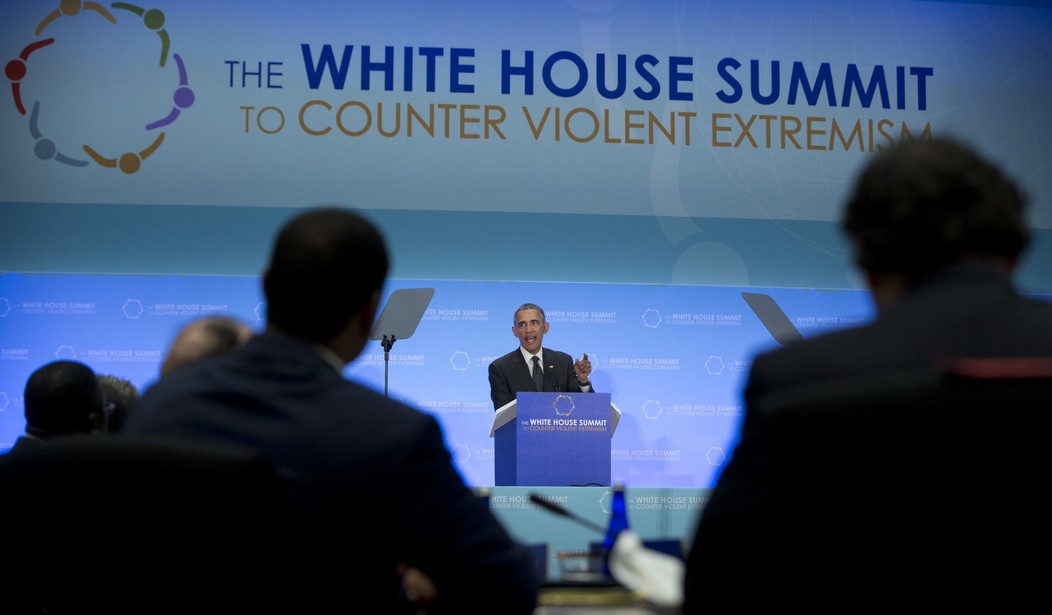The “deradicalization” narrative — along with a whole industry of academics pursuing large cash grants from governments looking to set up such programs — is built upon the premise that the right set of information and conditions can turn terrorists not only away from violence, but even into respectable and productive citizens.
More often than not, it seems, reality demonstrates the premise’s naivety.
In my previous article, I looked at the current case of Brooklyn native Mohimanul Alam Bhuiya, a former ISIS fighter who defected from the group and is now being enlisted by the Justice Department to help “deradicalize” other terror recruits. Having already pleaded guilty to his crimes, he is looking for reduced sentencing in exchange for his assistance.
I noted that many “deradicalization” programs established by Western governments have been fraught with repeated and embarrassing failures. But these programs have failed in the Muslim world, too — including in Indonesia, which has the largest Muslim population of any country, and Saudi Arabia, which arguably has the most global influence. If Muslim countries can’t figure out how to craft effective Islamic “deradicalization” programs, what hope do Western countries have?
Two recent high-profile cases of former terrorists turned defectors touted by the international media represented the promise of “deradicalization” programs, but delivered the predictable failure that seems the dominant pattern with such efforts.
The Rise and Fall of Al-Qaeda Recruiter Turned “Deradicalizer” Jesse Morton
Last August, national and international media organizations were abuzz with the news that former al-Qaeda recruiter Jesse Morton — aka Younus Abdullah Muhammed — was given early release from his 12-year federal prison sentence. Morton was to take an academic research position at George Washington University’s Program on Extremism:
The Program on Extremism welcomes our newest hire Jesse Morton. https://t.co/2ynhjaqJSX
— Program On Extremism (@gwupoe) August 29, 2016
Jesse Morton used to be a prolific Al Qaeda recruiter. Now he works at a think tank that researches radicalization. https://t.co/pzPzJaxXxS
— The New York Times (@nytimes) August 29, 2016
Morton was not your average “material support for terrorism” jihadist wannabe. Not only was he in direct communications with senior al-Qaeda leaders overseas, but — as one of the leaders of the New York-based Revolution Muslim network — he was responsible for recruiting an eye-popping number of now-convicted domestic terror supporters:
9. All to say Morton was the real deal. He was in direct contact with al-Qaeda's chief propagandist Anwar Awlaki https://t.co/gxSglKXxxe
— Rukmini Callimachi (@rcallimachi) August 29, 2016
As the FBI press release published at the time of his conviction on terror charges states, he openly supported the 9/11 attacks and the November 2009 massacre at Fort Hood by Major Nidal Hasan. He also directed his supporters to commit violence against Jewish organizations and the creators of the South Park TV program.
Amidst a PR effort by the GWU Program on Extremism, the media adored Jesse Morton’s story of radicalization and redemption:
George Washington University hires a former al-Qaeda recruiterhttps://t.co/Md07Pn6m3m
— The Washington Post (@washingtonpost) September 1, 2016
American Qaeda recruiter who once inspired terror plotters now goes public to counter them. https://t.co/qQp9Df0vtW pic.twitter.com/Bp4hzXwrVz
— New York Times World (@nytimesworld) August 29, 2016
From al-Qaeda to the classroom: George Washington University hires former Islamic extremist https://t.co/1ncSvk1YZl pic.twitter.com/JOdC5EWvUT
— CNN (@CNN) August 30, 2016
He once urged extremists to kill in the name of Allah. But Jesse Morton says he’s now a different man https://t.co/Xgjopwg5Qu
— Hindustan Times (@htTweets) September 15, 2016
Morton was sought after for interviews by media organizations all over the world:
.@hari asks Jesse Curtis Morton about his path from radicalism to research https://t.co/QJqinMePJZ
— PBS NewsHour (@NewsHour) August 30, 2016
LISTEN @DAaronovitch speaks to former jihadi Jesse Morton, who reveals what led him to turn his back on extremism https://t.co/JiE1gLPsdn
— BBC Current Affairs (@BBC_CurrAff) September 5, 2016
An @AFP interview with our research fellow Jesse Morton. https://t.co/H5m5DpTbzw
— Program On Extremism (@gwupoe) September 16, 2016
He was even hailed by Fox News’ Bill O’Reilly:
In interview, @OreillyFactor says @GWUpoe researcher Jesse Morton is story of redemption & he's with good guys now. https://t.co/AIcMFfGJRF
— Brett Zongker (@BrettZongker) September 17, 2016
He also hit the lecture circuit:
Jesse Morton, former extremist of NYC-based group active in 2000s, speaks about his experience & de-radicalization #USAOSecConf pic.twitter.com/w8Avq2GEqr
— U.S. Attorney MA (@DMAnews1) September 29, 2016
We're kicking off our event with 'formers' Our research fellow Jesse Morton is talking about his radicalization process. @lifeafterhate pic.twitter.com/3G4ck6Rp1c
— Program On Extremism (@gwupoe) October 31, 2016
Despite Morton having accomplished no more than getting an early release from his federal prison sentence and showing up for interviews, the foreign policy “smart set” showered him with accolades:
Congratulations to our fellow Jesse Morton for being named a @ForeignPolicy #GlobalThinkers today. https://t.co/ChsZDyhedB
— Program On Extremism (@gwupoe) December 12, 2016
However, some urged caution, this writer included, at the media’s frenzied embrace of Morton and his story:
The haste w/ which the smart set is canonizing Morton as reformed gives me pause. This could turn out VERY badly.
— Patrick Poole (@pspoole) August 29, 2016
I heard Jesse Morton on the audio say he won't tell fellow Muslims what to think. Call me skeptical that he "de-radicalized."
— Tim Sumner (@SgtTim911) August 30, 2016
GWU “ex-jihadist” Jesse Morton wants to dismantle “entire counterterrorism component of military-industrial complex” https://t.co/2kFt5yMIAG
— Robert Spencer روبرت سبنسر (@jihadwatchRS) September 11, 2016
.@elizcohencnn GWU’s Jesse Morton does not seem to have renounced his beliefs re Islamic supremacism/Sharia https://t.co/SOCeFaiHcL
— Benjamin Weingarten (@bhweingarten) September 11, 2016
It was no surprise when, exactly five months after Morton’s hiring was announced by GWU, news broke that he had been arrested again, this time for vice:
Islamic Terrorist Recruiter Hired By George Washington U. Has Been Busted For HOOKERS AND BLOW https://t.co/M3QJIKFFFb pic.twitter.com/bxEoKNq21w
— Daily Caller (@DailyCaller) January 29, 2017
Man who turned away from radical Islam arrested on drug, prostitution charges https://t.co/KC5duttsEM
— Post Crime (@postcrime) January 25, 2017
In their rush to garner media, did the GWU Program on Extremism push Morton out into the public eye far too soon? How much confidence did they have in his “conversion” story? Was the narrative that “deradicalization” was possible in such a high-profile case too tempting for the media to apply basic journalistic scrutiny?
The answer to the first two questions may never be known. But the media’s haste to push the “deradicalization” narrative again exposed their ideological bias when all the evidence urged caution.
Tale of German Isis “Defector” Quickly Falls Apart
The headlines blared:
“Islamic State plans attacks in Europe!” “ISIS defector tells all!” “Terror recruit gives us a deep look inside the Islamic State!”
For the international media, the story was too good to check: A Western terror recruit who traveled to Syria, trained with the Islamic State, and then abandoned the terror group and returned home was offering media exclusives on the Islamic State’s deepest secrets. And these weren’t just any Islamic State secrets, but the crown jewels of terrorism reporting: insider information about looming attacks in the West.
How a secretive branch of ISIS built a global network of killers. https://t.co/k6ZiblVAvP pic.twitter.com/9X3jgWJ0KX
— New York Times World (@nytimesworld) August 3, 2016
Harry Sarfo, a German citizen of Ghanian background, had left for Syria in 2015. He even appeared in ISIS propaganda videos. According to Sarfo’s version of events, after a few short months with the group he quickly grew disenchanted with the brutality of the Islamic State, which he swore he never participated in. He then fled to Turkey, and then returned to Germany.
His story was first reported last June by ZDF:
#Frontal21 und @ZDFzoom exklusiv: Syrien-Rückkehrer über Anschlagspläne des IS @zdfhttps://t.co/5hmF2wekyg pic.twitter.com/DtYMm4wL51
— @Frontal21 (@Frontal21) June 16, 2016
In early August, The Independent (UK) and the New York Times:
An Isis defector reveals where they are planning to attack next https://t.co/neIxvmr93L pic.twitter.com/IUUa5l9yMd
— The Independent (@Independent) August 4, 2016
An ISIS defector speaks out on how the Islamic State built a global network of killers https://t.co/sh2fh65aLC pic.twitter.com/bgVyrZ0dtD
— New York Times Video (@nytvideo) August 3, 2016
International media dutifully picked up his remarkable story:
Report: ISIS Defector Describes Interest in Western Attacks https://t.co/8xKJuPxjnY
— NBC News World (@NBCNewsWorld) August 4, 2016
Harry Sarfo, Islamic State defector, acted in a Wilayat Homs video released on August 4 2015 "سياحة الأمة" pic.twitter.com/MAvje94o4x
— Daniele Raineri (@DanieleRaineri) August 3, 2016
Unfortunately for Sarfo, his former ISIS colleagues still read the Western media, too. And they had a story to tell as well. Sarfo had lied — the Washington Post was provided video by ISIS operatives showing Sarfo directly involved in executions:
https://twitter.com/gregpmiller/status/783309616595828736
This ISIS defector said he was an innocent bystander. A new video questions his story. https://t.co/CY9anvMBgg
— Barbara Starr (@barbarastarrcnn) October 4, 2016
He didn't speak about a mass execution in which he participated. @smekhennet obtained a video which is now used as evidence against him. pic.twitter.com/7iTPVG3nWa
— Björn Stritzel (@bjoernstritzel) February 4, 2017
The story was no longer Sarfo’s insider look into the Islamic State. It was the media’s willingness to have taken a former terrorist’s word at face value:
How a former #ISIS recruit and media darling edited his own story https://t.co/nGXRM5UUCl pic.twitter.com/14lStFgPIp
— NDTV (@ndtv) October 5, 2016
The New York Times, Independent, and others used this ISIS defector as a main source in stories. Glad someone dug into his real past. https://t.co/M0iNft8g6N
— Sheera Frenkel (@sheeraf) October 6, 2016
Some of the reporters who pushed Sarfo’s story were defensive about their previous stories. The outlets later tried to walk them back:
Why the hostility? We report what we know at the time, new evidence emerges, stories are amended. No shame in that.
— Hannah Allam (@HannahAllam) October 6, 2016
its's unbelievable how you want to hide your poor journalism by attacking @WashPost and @ZDF ? 1/2
— Steffen Burkhardt (@st_ffen) October 6, 2016
Harry Sarfo said he reluctantly acted in an ISIS video. Now another clip shows him shooting. https://t.co/SIoKAy8wDR pic.twitter.com/hp5becrnig
— New York Times World (@nytimesworld) October 5, 2016
How reliable did Sarfo’s claims appear to begin with? It turned out that there were issues from the start:
When former #ISIS fighters talk, can we trust what they say? @smekhennet investigates » https://t.co/KdJO6gJAoT pic.twitter.com/skZXyqNzl8
— Blendle (@Blendle) October 6, 2016
After the NYT interviewed Sarfo, I spoke with a German ISIS member who was very skeptical about Sarfo's claims. https://t.co/fReNCBYD8q pic.twitter.com/iriUWATAAc
— Björn Stritzel (@bjoernstritzel) October 4, 2016
according to the #ISIS source who provided the #Sarfo video to us, he did not know much about it.
— Souad Mekhennet (@smekhennet) October 5, 2016
Someone could reasonably raise the point that current and former ISIS fighters may not be the best witnesses against a defector. How much was true? We really don’t know; most likely there is no way to determine how reliable his claims were. A skeptical approach to Sarfo’s story was warranted then, and definitely now.
Meanwhile, Sarfo has been charged with murder and war crimes for his role in ISIS executions:
Harry Sarfo, imprisoned #ISIS member from Germany who denied killing for ISIS, charged w/ murder & war crimes. More: https://t.co/sLmCcS00sV pic.twitter.com/ehUdLj1fTC
— CEP (@FightExtremism) January 4, 2017
Harry Sarfo, repentant Islamic State fighter from Germany, is charged with participation in killings in Syria: https://t.co/X1JXToZZRS pic.twitter.com/ffuYkNmFQA
— Graeme Wood (@gcaw) January 3, 2017
Chasing the “Deradicalization” Unicorn
There are endless calls for governments to increase funding for “deradicalization” programs, and there are many NGOs, researchers, and academics seeking those funds. Yet as I noted in Part 1, these government-sponsored “deradicalization” programs are failing everywhere. Worse, there are not many ways to objectively measure success when something doesn’t happen.
In the recent cases of Jesse Morton and Harry Sarfo, the media failed in their basic journalistic responsibilities — in both instances they advanced the “deradicalization” narrative that fell apart in the matter of months.
Needless to say, the follow-up reporting that undercuts the initial stories did not get anywhere near the hype or attention of the original sensational stories.
It should also be noted that in virtually all of these cases of “reformed” or “deradicalized” terror recruits and operatives lies the threat of criminal prosecution. The suspects themselves have a real-world incentive beyond media recognition to spin personal stories of redemption: avoiding prison time.
Which brings us back to the case of Mohimanul Alam Bhuiya.
The Justice Department enlisted this former ISIS fighter as part of a “deradicalization” program. However, even in his initial communication with the FBI when he sought to return from Syria, he made clear that his intention was to eliminate any legal consequences for having joined the most lethal terrorist organization in the world.
He faces sentencing in federal court later this year.
An examination of these “deradicalization” programs in the U.S., other Western countries, and even in the Muslim world shows that the Justice Department’s chances of success are risky at best. Yet now we have the media, yet again, pushing a sensational story of a “reformed” former terrorist operative.
Why are they so insistent on not learning any lessons?
While the Justice Department and the media chase the mythical “deradicalization” unicorn, Americans face greater risk because of their pursuit.








Join the conversation as a VIP Member